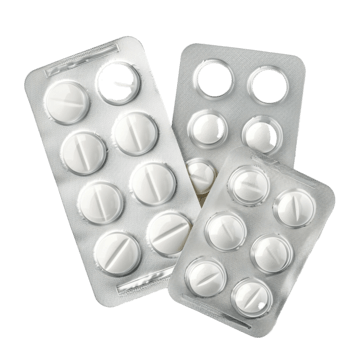Verapamil

Verapamil 40mg, 80mg, 120mg
Verapamil is a calcium channel blocker that is primarily used to treat high blood pressure, angina (chest pain), and certain heart rhythm disorders. By inhibiting the influx of calcium ions into cardiac and smooth muscle cells, it helps to relax and widen blood vessels, thereby improving blood flow and reducing heart workload. It is commonly prescribed for its ability to manage hypertension and to prevent episodes of angina, while also being effective in controlling abnormal heart rhythms.
Order NowDescription
Verapamil is a calcium channel blocker that is primarily used to treat hypertension (high blood pressure), angina (chest pain), and certain heart rhythm disorders. It works by relaxing the muscles of your heart and blood vessels, thereby reducing the workload on the heart and improving blood flow.
Uses / Indications
- Hypertension (high blood pressure)
- Angina (chest pain due to reduced blood flow to the heart)
- Certain types of arrhythmias (irregular heartbeats)
- Preventive treatment of migraine headaches
- Management of cluster headaches
Dosage and Administration
Adults:
Initial dose for hypertension: 80 mg to 120 mg daily (divided into 2-3 doses) or a sustained-release formulation of 240 mg to 480 mg once daily. Adjust dose based on clinical response.
Children:
Dosage is typically based on weight and medical condition. Consult a pediatrician for appropriate dosing.
Note: Dosage may vary based on individual patient needs or doctor’s advice.
How It Works (Mechanism of Action)
Verapamil works by inhibiting the entrance of calcium ions into cardiac and vascular smooth muscle cells through voltage-gated calcium channels. This action leads to relaxation and dilation of blood vessels, reducing the force of the heart’s contractions, and ultimately lowering blood pressure and reducing the heart’s oxygen demand.
Side Effects
Common side effects:
- Constipation
- Dizziness or lightheadedness
- Fatigue
- Nausea
Rare/serious side effects:
- Severe hypotension (very low blood pressure)
- Heart block (irregular heartbeat)
- Liver problems (elevated liver enzymes)
Seek medical attention if serious side effects occur.
Precautions / Warnings
- Inform your doctor if you have heart disease, kidney issues, liver conditions, or are pregnant/breastfeeding
- Use caution when taking with other medications that may lower heart rate or blood pressure
- Regular monitoring may be needed while on treatment, especially if you have a history of cardiac conditions
Drug Interactions
May interact with:
- Beta-blockers (may enhance the effects on heart rate)
- Digoxin (may increase levels and effects)
- Alcohol (may enhance hypotension or dizziness)
- Other antihypertensives
Always inform your healthcare provider about any other medications or supplements you’re taking.
Storage Instructions
- Store at room temperature (20°C–25°C / 68°F–77°F)
- Keep away from moisture, heat, and direct light
- Keep out of reach of children
Missed Dose / Overdose
Missed a dose?
Take it as soon as you remember. If it’s almost time for your next dose, skip the missed one. Do not double up.
Overdose symptoms:
- Severe dizziness or fainting
- Fast or irregular heartbeat
- Shortness of breath
- Nausea or vomiting
Contact a poison control center or seek emergency medical help immediately.
Contraindications
- Allergic to Verapamil or any of its ingredients
- Severe hypotension (low blood pressure)
- History of certain heart rhythm disorders (e.g., Wolff-Parkinson-White syndrome)
Brand Names / Alternatives
- Calan
- Isoptin
- Verelan
- Covera-HS
- Generic name: Verapamil

